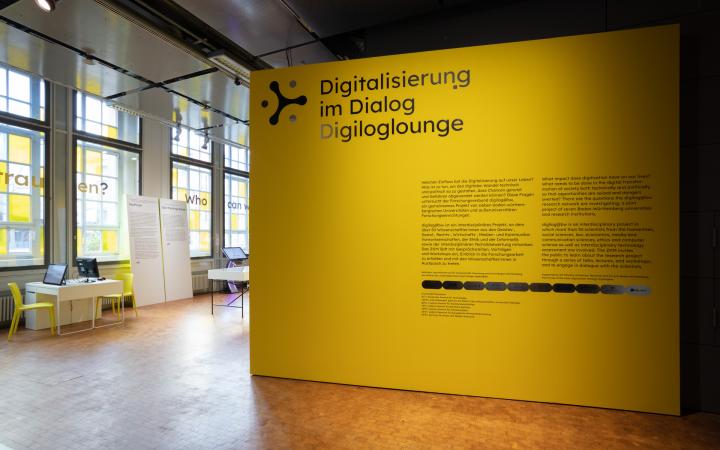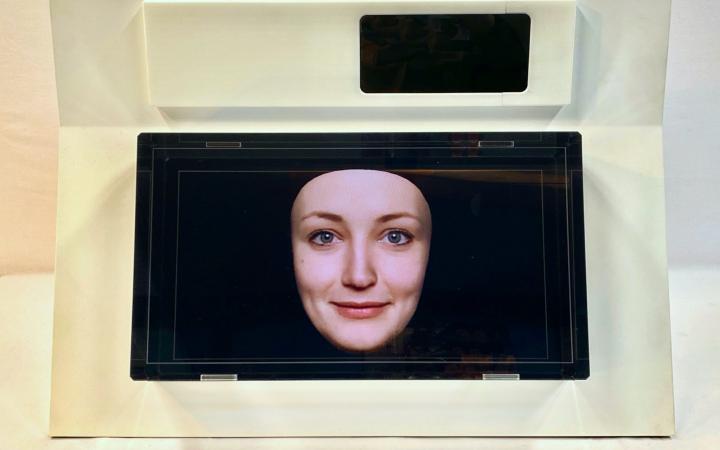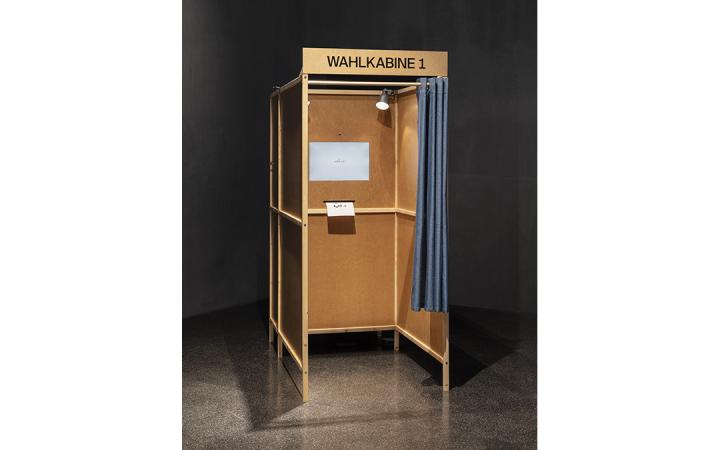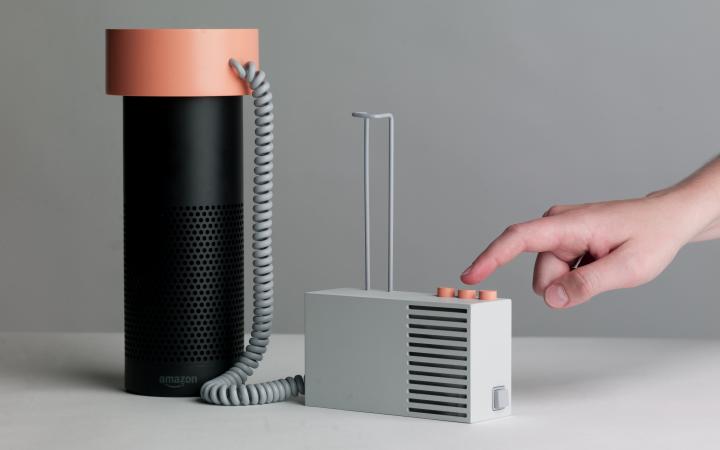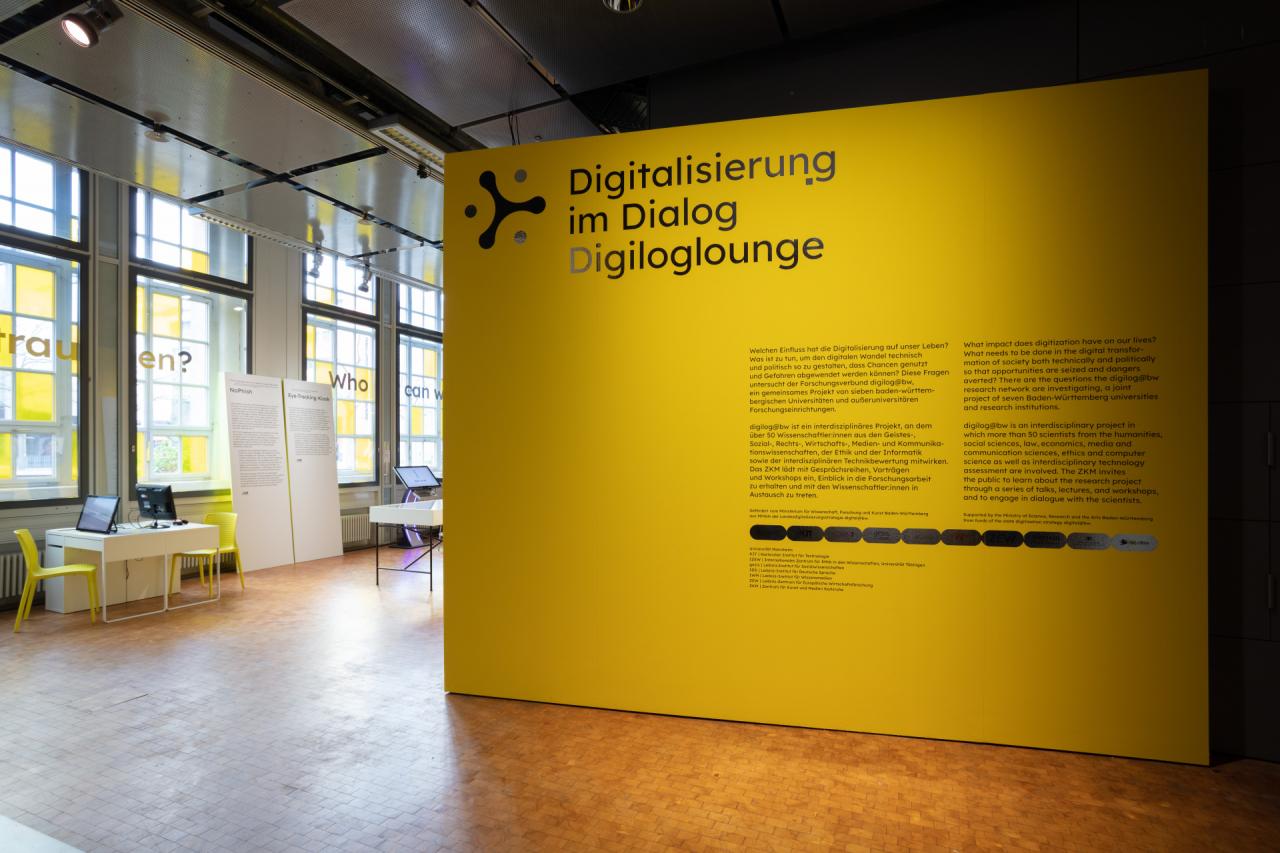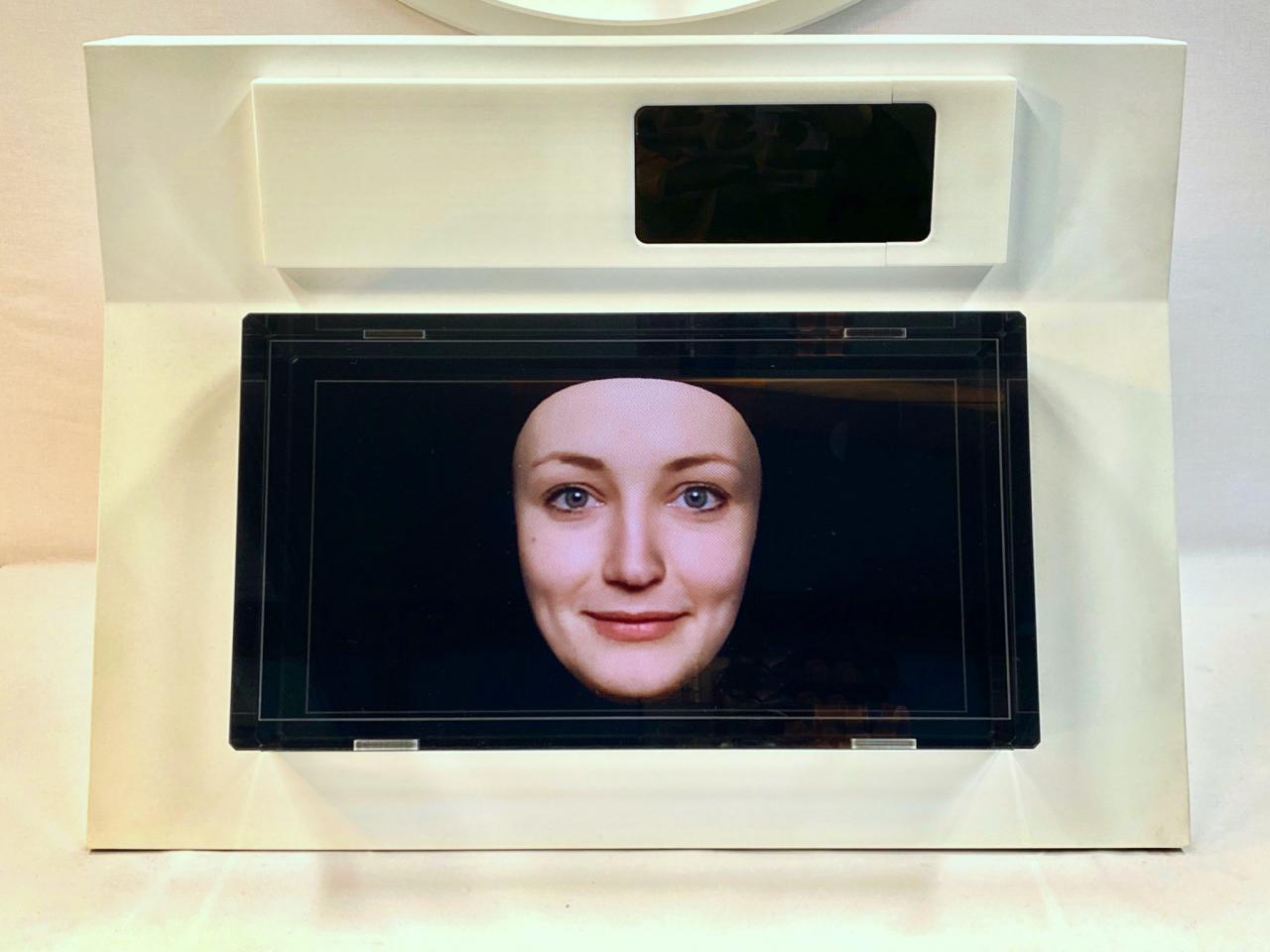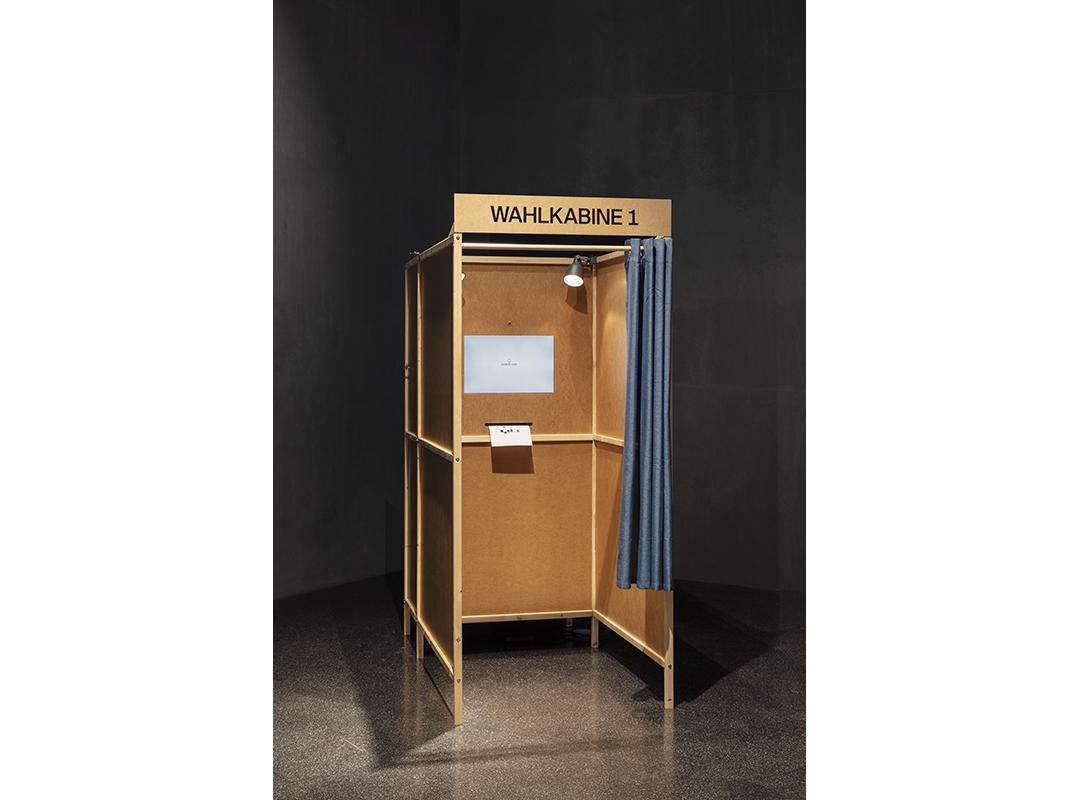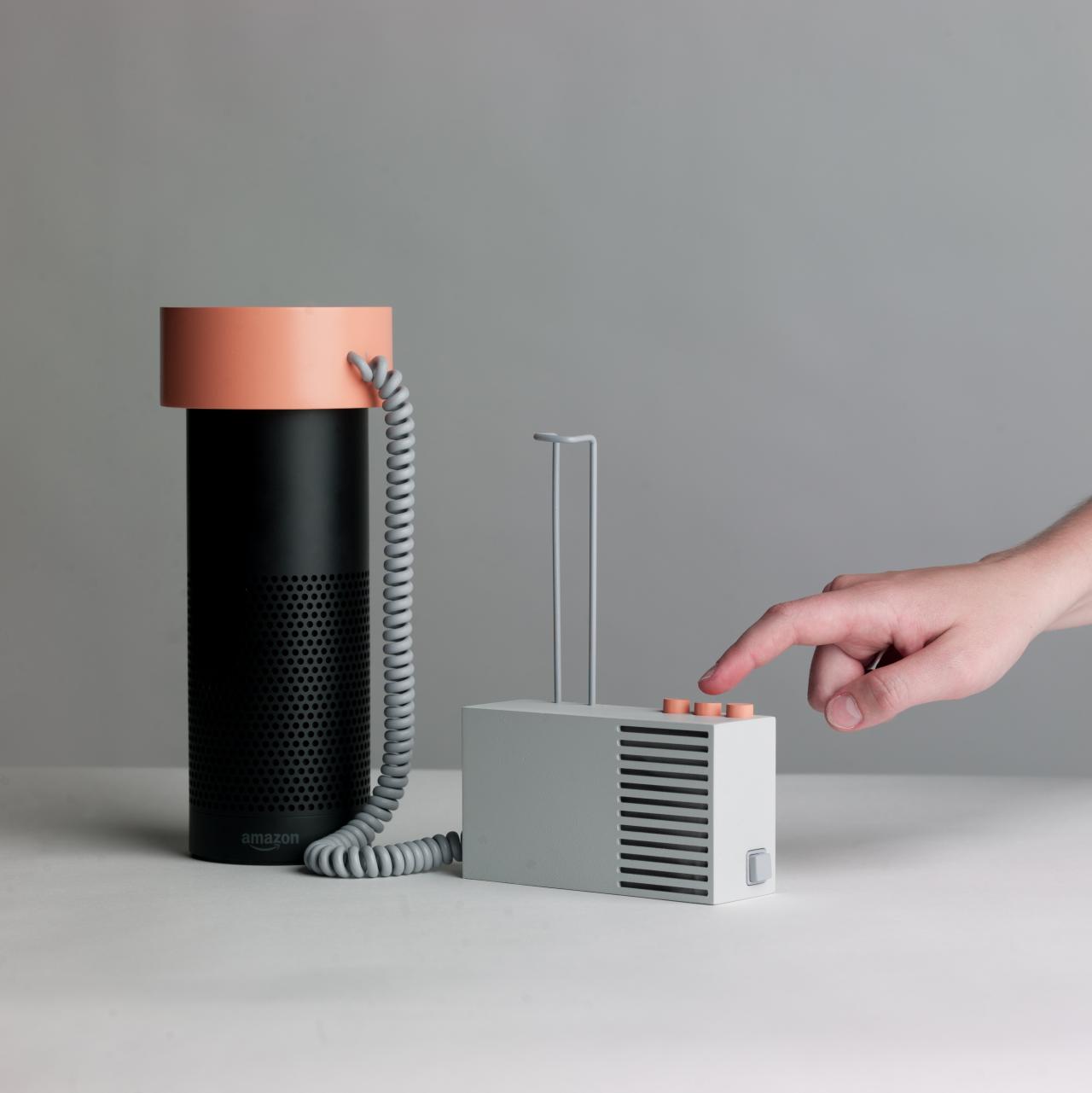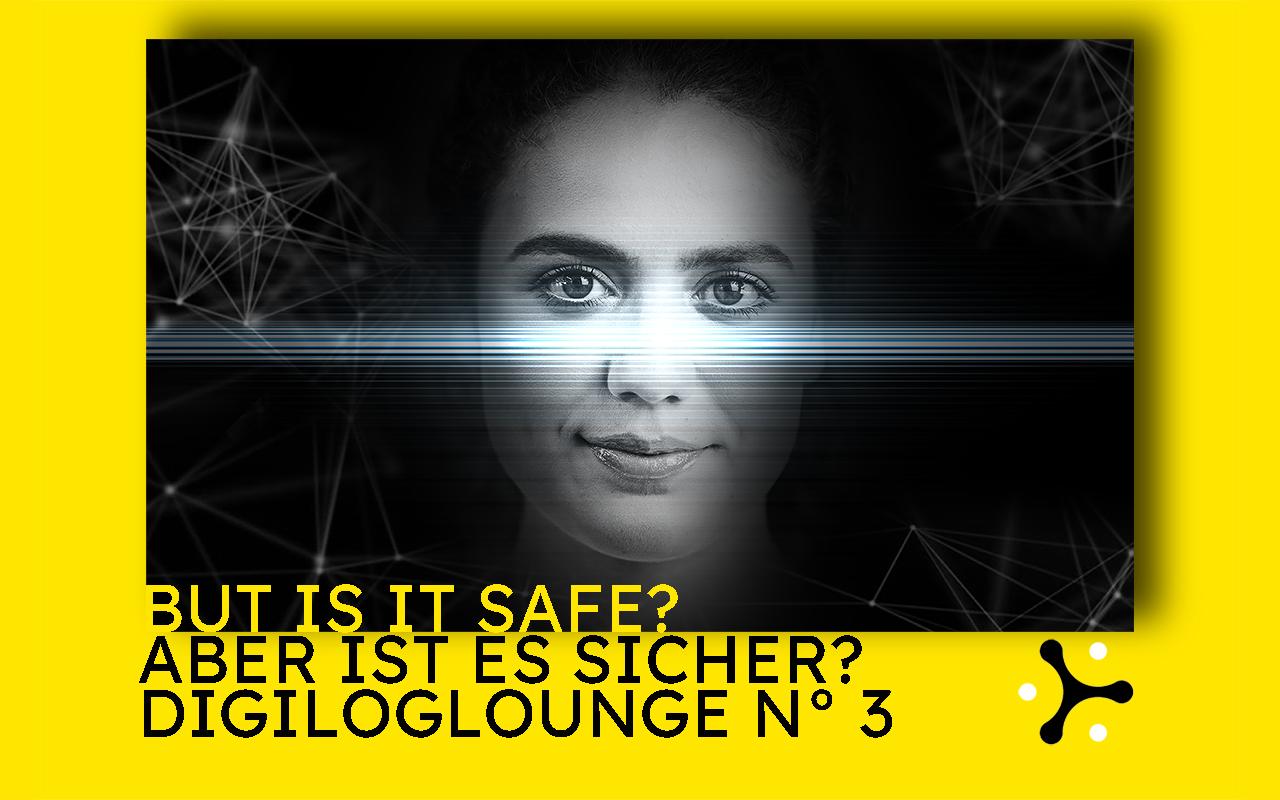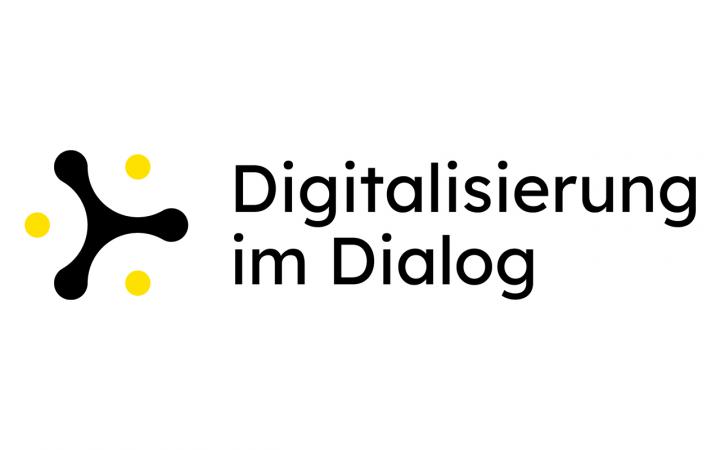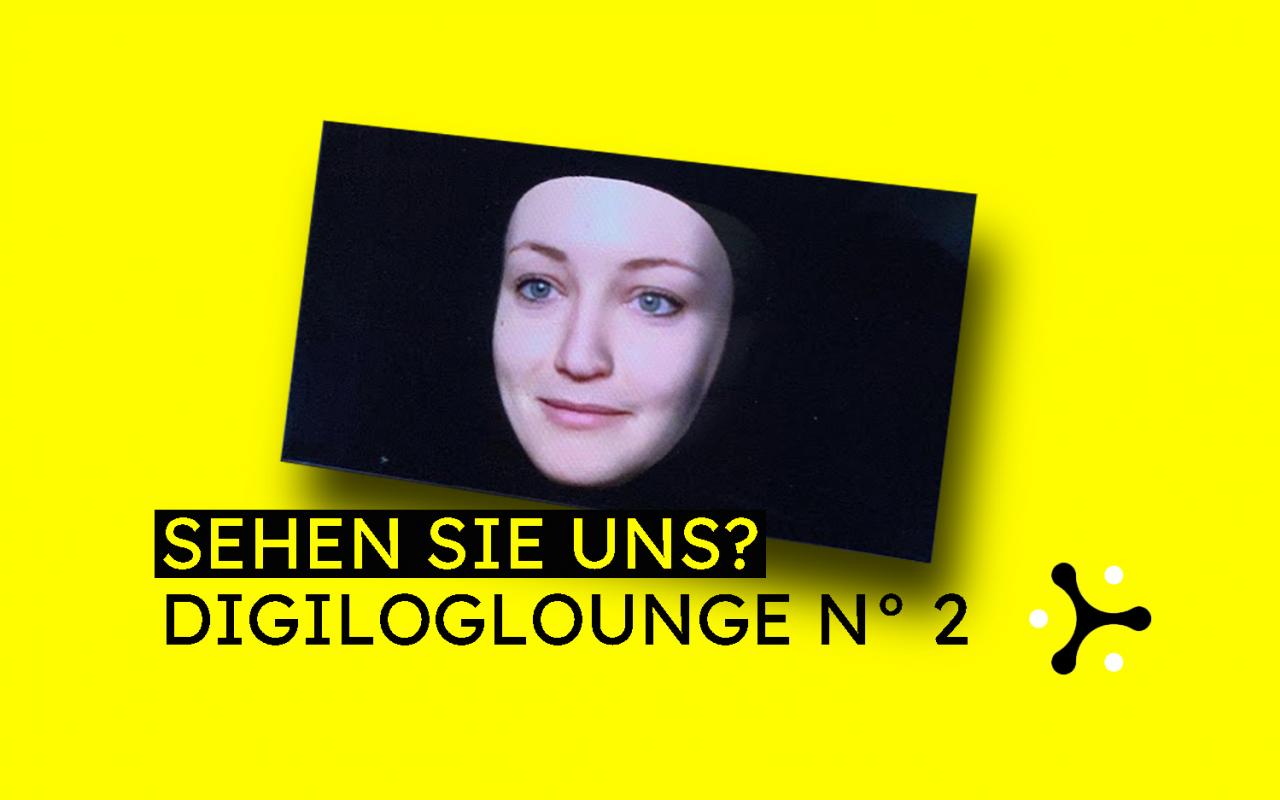
How can we benefit from personalized digital services while protecting our privacy? What do we need to know about the various forms of automated recording of our behavior – "tracking" – in order to make informed decisions, about the use of digital devices and services? As much of our communication and work becomes impossible without smartphones and computers, these questions take on greater urgency.
The »Digiloglounge« is the exhibition format of the interdisciplinary research project »digilog@bw« (Gesellschaft im digitalen Wandel - Digitalisierung im Dialog), combining scientific and artistic perspectives.
Two installations developed at the KIT | Institute for Information Systems and Marketing (IISM) and the KIT | Institute for Telematics (TM) offer visitors the opportunity to test eye-tracking applications and thereby contribute to scientific research. The artworks shown in the exhibition address the fact that most of the digital services that make our lives easier – from unlocking the smartphone by facial recognition to household robots – rely on observing us and creating a model of our behavior and environment. How do these machines see us? On what assumptions are the models they create based?
»TrustAI« (2020) by Bernd Lintermann and Florian Hertweck allows visitors to find a personal answer to the question of whether we can trust artificial intelligence by talking to an AI. The film »HOMESCHOOL« (2019) by Simone C. Niquille / Technoflesh addressing the training of household robots raises questions about categories and cultural biases that enter our digital domestic environments. Katja Trinkwalder and Pia-Marie Stute's »Accessories for the Paranoid« (2019) suggests how we might disguise our digital identities when using digital devices.
digilog@bw – Digitization in Dialogue
»Digiloglounge« is the online communication, workshop and exhibition format of the digilog@bw research network, which was initiated in 2019. More than 50 scientists from the humanities, social sciences, law, economics, media and communication sciences, ethics and computer science as well as interdisciplinary technology assessment are involved in the interdisciplinary project, which is supported by seven Baden-Württemberg universities and non-university research institutions. With series of talks, lectures, and workshops, ZKM invites you to gain insight into this research work and to enter into an exchange with the scientists.
With contributions from the KIT | Institute for Information Systems and Marketing (IISM) (KIT) (Peyman Toreini, Pascal Roller, Moritz Langner, Alexander Mädche), the KIT | Institute for Telematics (TM) (Sebastian Friebe, Martina Zitterbart), Florian Hertweck, Bernd Lintermann, Simone C. Niquille /Technoflesh, Pia-Marie Stute, and Katja Trinkwalder.
- Credits
- Margit Rosen (Curator)
- Team
curatorial assistance: Jenny Starick, Laura Schmidt
technical project management: Jan Gerigk- Organization / Institution
- ZKM | Zentrum für Kunst und Medien
- Partners
Universität Mannheim
KIT | Karlsruher Institut für Technologie
IZEW | Internationales Zentrum für Ethik in den Wissenschaften
gesis | Leibniz Institut für Sozialwissenschaften
IDS | Leibniz-Institut für Deutsche Sprache
IWM | Leibniz-Institut für Wissensmedien
ZEW | Leibniz-Zentrum für Europäische Wirtschaftsforschung- Funding
Supported by the Ministry of Science, Research and the Arts of Baden-Württemberg from funds of the state digitization strategy digital@bw.
Contributors
- Sebastian Friebe
- Florian Hertweck
- Institut für Telematik (TM), KIT
- KIT | Institut für Wirtschaftsinformatik und Marketing (IISM)
- Moritz Langner
- Bernd Lintermann
- Tobias Länge
- Phillip Matheis
- Alexander Mädche
- Simone Niquille
- Pascal Roller
- Pia-Marie Stute
- Peyman Toreini
- Katja Trinkwalder
- Martina Zitterbart
- Show all
